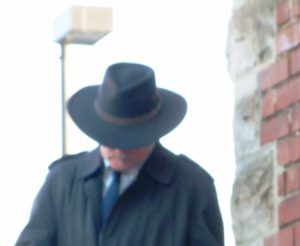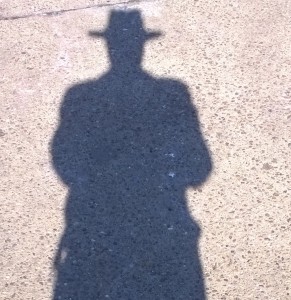Suppose just for a moment that what I am about to tell you is what really happened. Suppose for a moment it is the truth that diplomats and elites do not want you to know.
First off, it will help you to understand that the world exists at two different levels: the one the elites want us to see, hear about, and is written about by the press; the other, which exists only for elites, takes place in a different realm, where only the few live.
In order to understand what really happened at Benghazi, this is the fourth in a series of articles that will provide the background to what led up to the diplomatic disaster that cost the United States the lives of Ambassador J. Christopher Stevens, Foreign Service Information Management Officer (IMO) Sean Smith, and CIA contractors and former Navy SEALS Tyrone Woods and Glen Doherty.
From the beginning of April 2011, NATO targeted sites associated with residences or other potential locations where Qaddafi and members of his inner circle may be found around Tripoli. Pro-Qaddafi officials immediately charged NATO with attempting to kill Qaddafi. Soon thereafter, Qaddafi’s son Saif al-Arab and three of his grandchildren were killed in NATO air strikes. This prompted a diplomatic effort from an African Union delegation to travel to Tripoli to attempt to negotiate a cease-fire plan. Shortly thereafter, the African Union announced that Qaddafi had accepted their plan. However, pro-Qaddafi forces continued attacking the rebels, causing the rebel leaders to reject the African Union plan—and not only because they were still being attacked, but also because their plan did not call for Qaddafi’s departure from Libya.
Despite the NATO attacks on pro-Qaddafi forces, the poorly armed and disorganized Libyan rebels were unable to remove Qaddafi. So, on April 19, the conflict still a stalemate, the United Kingdom announced that it would send a team of military liaison officers to advise the rebel leaders on military strategy, organization, and logistics. They were joined the next day by the French and Italian advisers. All three countries specified that their officers would not participate in fighting. However, NATO forces were already fighting alongside the rebels. This prompted an immediate protest from the Libyan foreign minister. Yet, the British Foreign Secretary claimed that the deployment of advisers was within the provisions of UN Security Resolution 1973, despite its language specifically forbidding a foreign occupation in Libya.
On May 11, the Polish Foreign Minister traveled to Benghazi to show his country’s support for the future of the National Transitional Council. The next day, the British Foreign Secretary recognized Mustafa Abdul Jalil, the leader of the rebel National Transitional Council and a former judge who had constantly opposed Qaddafi, as the “legitimate representative of the Libyan people.” That same day, British Prime Minister David Cameron invited the rebels to establish a permanent office in London.
On May 24, representatives of the National Transitional Council were invited to the White House to discuss the future of Libya with President Obama’s National Security Advisor, as well as open a representative office in the United States. It is of future importance to note that within the National Transitional Council were members of the Muslim Brotherhood of Libya, an organization that Qaddafi had restricted from becoming formally organized in Libya, unlike their counterparts in Egypt and Tunisia.
Next, Russia officially recognized the National Transitional Council as a legitimate negotiator on the future of Libya. On May 27, French President Sarkozy announced plans to visit with the National Transitional Council in Benghazi.
On June 1, NATO, the Gulf Cooperation Council (Bahrain, Kuwait, Oman, Qatar, Saudi Arabia, and the United Arab Emirates) , and Sweden agreed to extend the military campaign for an additional 90 days from the end of June in an effort to protect civilians from pro-Qaddafi forces. On June 9, a conference was held between participating Western and Arab nations. They offered over $1.3 billion in aid to the rebel forces for a post-Qaddafi Libya. At that same conference, both Australia and the United States formally recognized the rebel government as the legitimate representative of the Libyan people.
On June 16, another of Qaddafi ‘s sons, Saif al-Islam, announced his father was willing to hold free elections within three months, as well as draft a new constitution. The rebels demanded Qaddafi ‘s resignation. The son claimed his father was willing to give up power through a free election, but wished to live out his life and die in Libya. However, when the International Criminal Court (ICC) issued arrest warrants for Qaddafi, his son Saif al-Islam, and the Libyan intelligence chief, Abdullah Senussi, for ordering attacks against civilians rebel leaders believed this would prevent negotiations for Qaddafi to leave Libya in a bloodless coup. .
In June, the rebels, assisted by NATO attacks, were finally able to achieve some success as they advanced in the eastern and western regions of Libya. This left Qaddafi’s regime isolated internationally, yet still holding power in Tripoli.
On June 29, the French air-dropped a considerable cache of weapons, munitions, and food to aid Berber tribal fighters in the Jebel Nafusa region. Naturally, the French claimed the air-drop did not violate the arms embargo because the weapons were necessary for civilian protection. However, the air drop was met with disapproval by Russia and the African Union. Both expressed concerns these weapons would end up in the hands of al-Qaeda or another terrorist group, leading to further destabilization in the region. The next day, the British supplied 5,000 sets of body armor, 6,650 police uniforms, and 5,000 high-visibility vests to police loyal to the Transitional National Council. The equipment would allow police to perform their duties more securely and enable them to better protect Transitional National Council representatives and the refugee communities in rebel-controlled areas.
On July 3, the Turkish government officially recognized the Transitional National Council as the legitimate representative body. They also promised to provide $200 million in aid. This was in addition to the $100 million already provided to the rebels.
On July 4, Iran dispatched its third round of humanitarian aid to Libyan refugees living in Raas al-Jadir on the Libyan-Tunisia border. Two days later, Russia also delivered supplies to the rebels. On the same day, the UN World Food Program (WFP) established a regular sea route to deliver relief supplies and aid workers to Misrata from Benghazi. Over the previous four months, the WFP had distributed over 6,000 tons of food to at least 543,000 civilians attempting to flee the civil war.
On July 11, rebel commander General Abdel Fattah Yournes was assassinated by his own supporters. He was killed because his long-time association with Qaddafi created mistrust.
At the beginning of August, rebel forces advanced to the outskirts of Tripoli, taking control of strategic areas, including the city of Zāwiyah, the site of one of Libya’s largest oil refineries.
Then on August 21, the rebels overran a military facility also on the outskirts of Tripoli that had been run by the government’s elite Khamis Brigade. That brigade was commanded by one of Moammar Qaddafi ‘s sons, but rebels did not announce they had captured him. On the same day, rebel fighters moved into Tripoli’s central Green Square after breaching pro-Qaddafi defenses. In the fighting that ensued, rebel forces announced they had captured another of Qaddafi ‘s sons, the wanted Saif al-Islam, and Libya’s intelligence chief.
Following the rebel push into Tripoli, NATO Secretary General Anders Fogh Rasmussen and US President Barack Obama made statements indicating that Qaddafi’s regime was over. Qaddafi vowed to stay in power until the bitter end as rebel forces surrounded his compound in Tripoli. Qaddafi slipped into hiding, only occasionally issuing defiant messages. Rebels raised Libya’s pre-Qaddafi flag over the compound as jubilant crowds destroyed symbols of Qaddafi. Then, while conducting an interview on Al Jazeera, Qaddafi ‘s eldest son, Mohammad, was captured.
By early September, rebel forces solidified their control of Tripoli. Then the Transitional National Council transferred its operations there. Rebel forces focused their attention on the few remaining cities under loyalist control. However, before moving on these cities, they attempted to negotiate with commanders still loyal to Qaddafi to surrender peacefully and avoid a bloody ground assault. These attempts failed, so rebel troops began to push into the remaining cities.
On September 15, the Transitional National Council achieved new international legitimacy when the UN General Assembly voted to recognize it as the official representative of Libya.
On September 21, the Secretary General of NATO announced the extension of Operation Unified Protector, the mission to protect civilians in Libya, by another 90 days. This meant that NATO forces would continue their missions to enforce the embargo, enforce a No-Fly Zone, and continue with the protection of the civilian population. In a press briefing the next day, Lieutenant General Bouchard, Commander for Operation Unified Protector, announced NATO was pleased to report there were only three isolated areas where regime forces continued to fight.
On October 20, Qaddafi was discovered and killed by rebel fighters in his hometown of Surt. Qaddafi got his wish—he died in Libya.
How would the results of the civil war impact Libya’s future?
When the fighting was over, organizing a new government under the supervision of the National Transitional Council proved to be more difficult than toppling Qaddafi. Quickly, three main political powers emerged, including the Justice and Construction Party, the political branch of the Muslim Brotherhood. Al-Amin Belhajj, the head of the Justice and Construction Party, wanted to quickly rebuild the Muslim Brotherhood party along the lines of neighboring Egypt and Tunisia. They had finally prevailed to have a voice following years of repression at the hands of Muammar al-Qaddafi.
The Muslim Brotherhood in Libya had been formed in 1949. But the growth of their organizational structure was squashed with the coup of Colonel Qaddafi. Thereafter, the Brotherhood was never allowed to operate openly. Many fled to the United States, where they reorganized under the new name “Islamic Group – Libya.” They made one last attempt to reorganize in 1982, when students returning from the United States pushed their political position, but Qaddafi either executed or imprisoned the organizers.
During the reorganized Libya’s first election, Khaled al-Mishri, a member of the Muslim Brotherhood, was elected as the chairman of the High Council of State. The Western World hoped the elections would unify the divide between eastern and western Libya. Not everyone was pleased with the first election in forty years, in Benghazi, where the initial uprising began, armed protesters stormed several of the poling centers claiming the process method was flawed. After stealing away with ballot boxes and voter rolls in several places, the local gunmen took control of the eastern Libyan crude oil exporting terminals.
So now let’s look back at Benghazi Part 2 – The Gold. The World Prime European bankers and European leaders got what they wanted; using the Arab Spring Movement, they prevented Qaddafi from implementing his gold-backed currency for Libya and parts of Africa. Not only did they stop the issuance of the gold-backed currency, but some of the country’s central bank gold disappeared from official records. What happened to it? Since World War II, gold placed under the control of European banks and their controlled warehouses has magically disappeared. If you think this is an overstatement, just ask individuals and other entities who had claims against Ferdinand Marcos’ estate.
Moreover, what happened to Qaddafi’s assets? Supposedly, they are frozen around the world so his family cannot abscond with them. The question is, who will?
